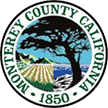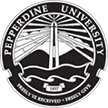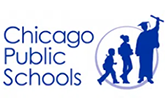CIT offers Navajo interpreters and translators with legal, medical and specialty experience, including criminal and civil matters, employee meetings, engineering, patent cases, labor disputes, immigration and more.
Although based in Los Angeles, CIT offers comprehensive Navajo language services including interpretation, translation and transcription, 24 hours a day, 7 days a week, worldwide. Our interpreters and translators are native speakers who have been screened, certified, have provided credentials, field tested, and kept up to date with developments in both English and the Navajo language through means such as lectures, conferences, and travel.
CIT’s Navajo language interpreters and translators possess in depth knowledge of the Navajo language, as well as of the culture and history of the Navajo people, allowing them to provide informed and complete interpretation and translation.
The Navajo language is part of the Athabaskan branch of Na-Dene languages. Also known as Dine to its natives, Navajo is spoken primarily in the Navajo Nation, located in northeastern Arizona, southeastern Utah and northwestern New Mexico.
About 170,000 people speak Navajo at home. The Navajo language is very similar and related to the Apache languages, but they are not so close that they are equally understandable.
The written Navajo language was first brought down in the mid 19th century as a word list which was published by Lt. James H. Simpson in the Journal of a Military Reconnaissance.
It was not long after, in the early 1900s, that missionaries had begun to publish religious texts, dictionaries and grammatical rules in Navajo. Each missionary had invented his own way of spelling causing several variations for the same word in Navajo.
In the 1930s, John Colliers, the head of Indian Affairs, and Willard Beatty, head of Indian Education, set out to standardize the Navajo alphabet. They commissioned four individuals, John Harrington, Robert Young, William Morgan and Oliver LaFarge, to make one Navajo alphabet and to put forth Navajo language materials.
A short 9 years later in 1939, the alphabet was finished. By the next decade, there were bilingual (English- Navajo) children’s books, dictionaries and even a monthly newspaper. However, because of the poor trust because the Navajo and Collier, this alphabet was not popular. In recent years, there has been an increase in interest in this language.
Part of this interest is in hopes to create Navajo computer fonts to facilitate reading, writing, editing and publishing literary Navajo materials. Since 1984, the Navajo language has been taught in schools.
Along with this, there are several immersion programs that have been put into place. In 1989, the Dine College in Tsaile, Arizona, offered an associate’s degree in Navajo. Additionally, one can take Navajo language classes at the Arizona State University.
The Navajo language has also made a mark on the media. Between 1943 and 1957, there had been a Navajo newspaper.
Additionally, there are radio stations, TV shows and even a version of the 1977 film Star Wars translated into Navajo.
There are certain grammatical notes one should know regarding Navajo. For example, the letter x only appears after the letters g, s, or z. There are four tones in Navajo (high, rising, falling and low). A high tone has an acute accent mark. The rising and falling tones can only happen with a long vowel.


No matter what your needs may be, we can and are ready to assist you now. We have translators and interpreters standing by 24/7.

CIT's interpreter is such a rockstar, and it’s so great to have him as a lead interpreter for our Board meetings. About Our Interpreters 
Thank you for always being able to handle emergency interpreting assignments with ease. About Urgent Requests 
Thank you for always being able to handle emergency interpreting assignments with ease. About Urgent Requests 
Your translation rates are more competitive than other language service providers I used in the past. About Pricing 

Professionalism matters at CIT. We respond to request inside 24 hours.







